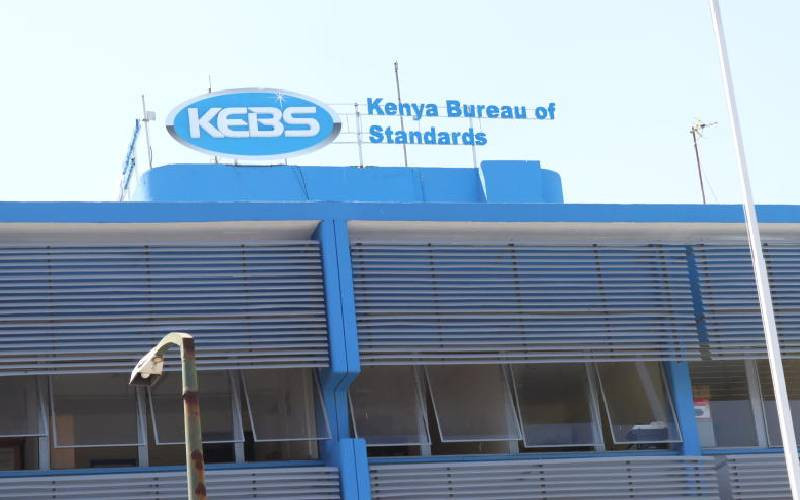The National Assembly has condemned the continued enforcement of the Kenya Bureau of Standards (Kebs) levy regulations, calling for their immediate withdrawal and proper parliamentary approval.
The Standards Levy Order, which has been in place since 2016, is under scrutiny for being implemented without adequate legal authority and insufficient public engagement, raising fears of unfair treatment toward smaller manufacturers.
The Parliamentary Committee on Delegated Legislation confronted Kebs and the Ministry of Trade officials, questioning how a regulation initially based on a 1990 legal notice was replaced without fresh parliamentary debate or proper public consultation.
Lawmakers expressed serious concerns over the legality of the current levy and warned that persisting with the collection under these rules could lead to costly court battles and the need to refund manufacturers.
“You must act quickly to avoid a court forcing you to return all money collected illegally. Withdraw the current regulations, republish them, and come back to the committee for full review and approval,” said committee chair Samuel Chepkonga.
Members also challenged the fairness of the levy structure. Currently, companies manufacturing goods worth more than Sh2 billion pay a flat maximum levy of Sh4 million, with plans to increase this ceiling to Sh6 million by 2030.
MPs argued this approach is unfair, benefiting large firms at the expense of smaller manufacturers.
“Charging the same levy to a company making Sh2 billion and one making Sh20 billion is discriminatory and contradicts the Constitution,” said Kathiani MP Robert Mbui.
The committee proposed shifting to a proportional levy system to ensure fairness and alignment with constitutional principles.
Industry Principal Secretary Juma Mukhawana admitted the regulations were not presented in Parliament on time, leading to the withdrawal of the order for re-drafting.
Kebs Managing Director Esther Ngari explained that public consultation was done, but the final regulations reflected compromises between the government and some manufacturers, who initially opposed the proposed 0.5 percent levy before it was reduced to 0.2 percent.
“The regulations mainly affect manufacturers, which is why there were issues during the review process,” Ngari said.
Kebs Board Chair Chris Wamalwa emphasized that the regulations were designed to update outdated frameworks and were created with input from industry stakeholders such as the Kenya Association of Manufacturers (KAM).
However, MPs stressed that consultation must extend beyond industry leaders to include the general public.
Kebs data shows that most manufacturers are Micro, Small and Medium Enterprises (MSMEs) earning less than Sh5 million annually, and are therefore exempt from the levy.

